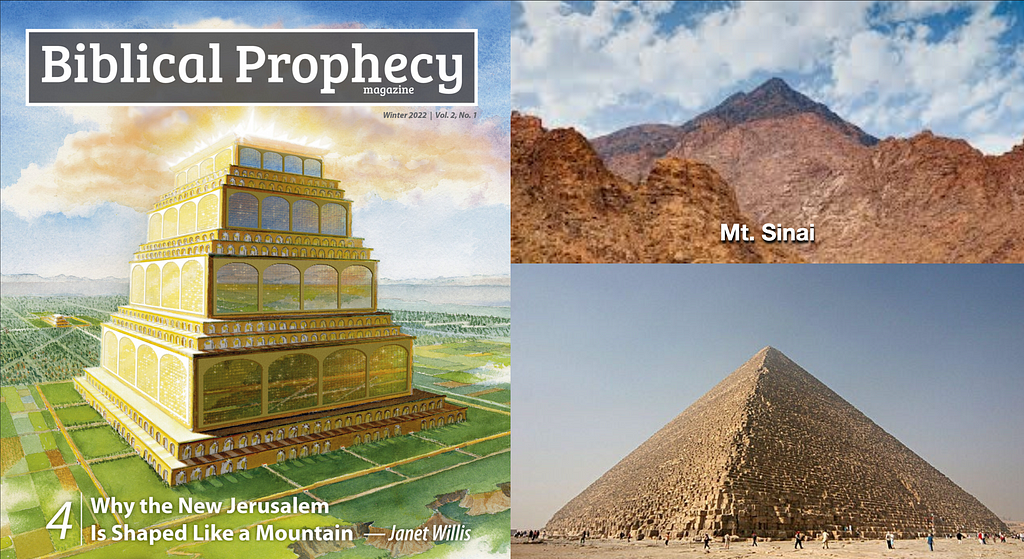There is far more to the Parable of the Cursed Fig Tree than most teaching cover! Most people believe and teach that this parable is Yeshua cursing Israel as a nation or is a metaphor for a warning about being fruitless in your faith.
Today I will present the case that the Fig Tree is symbolic of Babylon the Great which is destroyed in a single hour, tossed into the sea, and will never rise again. I will then link some verses from Jeremiah that suggest that he will snatch/rapture His people, the figs, before the curse.
Seeing a lone fig tree by the road, He came to it and found nothing on it except leaves only; and He said to it, “No longer shall there ever be any fruit from you.” And at once the fig tree withered.
Seeing this, the disciples were amazed and asked, “How did the fig tree wither all at once?”
And Jesus answered and said to them, “Truly I say to you, if you have faith and do not doubt, you will not only do what was done to the fig tree, but even if you say to this mountain, ‘Be taken up and cast into the sea,’ it will happen.
— Mat 21:19
Mark goes into far more detail and includes Yeshua overturning the money changers in the midst of the parable.
The next day as they were leaving Bethany, Jesus was hungry.
And seeing a fig tree afar off having leaves, he came, if happily he might find any thing thereon: and when he came to it, he found nothing but leaves; for the time of figs was not yet.
He said to it, “May no one ever eat fruit from you again!” And His disciples were listening. And his disciples heard it.
And they come to Jerusalem: and Jesus went into the temple, and began to cast out them that sold and bought in the temple, and overthrew the tables of the moneychangers, and the seats of them that sold doves;
And the scribes and chief priests heard it, and sought how they might destroy him: for they feared him, because all the people was astonished at his doctrine.
And when evening came, he went out of the city.
And in the morning, as they passed by, they saw the fig tree dried up from the roots.
And Peter calling to remembrance saith unto him, Master, behold, the fig tree which you cursed has withered away.
And Jesus answering saith unto them, Have faith in God.
For verily I say unto you, That whosoever shall say unto this mountain, Be thou removed, and be thou cast into the sea; and shall not doubt in his heart, but shall believe that those things which he saith shall come to pass; he shall have whatsoever he saith. — Mark 11:13–23
Then John provides yet another description with even more details about how he drove the people and animals from the courts. While scholars have different opinions on whether this is the same account or a second event, the prophetic message is the same regardless.
In the temple courts he found people selling cattle, sheep and doves, and others sitting at tables exchanging money. So he made a whip out of cords, and drove all from the temple courts, both sheep and cattle; he scattered the coins of the money changers and overturned their tables. To those who sold doves he said, “Get these out of here! Stop turning my Father’s house into a market!” — John 2:14–16
Now that we have reviewed the account, lets identify the critical parallels that let us know that this passage isn’t about Jerusalem, but about the fall of Babylon the Great.
Thrown into the Sea

And Jesus answered and said to them, “Truly I say to you, if you have faith and do not doubt, you will not only do what was done to the fig tree, but even if you say to this mountain, ‘Be taken up and cast into the sea,’ it will happen. — Matthew 21:19
For verily I say unto you, That whosoever shall say unto this mountain, Be thou removed, and be thou cast into the sea; and shall not doubt in his heart, but shall believe that those things which he saith shall come to pass; he shall have whatsoever he saith. — Mark 11:23
I believe the mountain being thrown into the sea is Babylon the Great. The bible often refers to kingdoms as mountains, for example Isaiah 2:2
And it shall come to pass in the last days, that the mountain of YHVH’s house shall be established in the top of the mountains (nations), and shall be exalted above the hills; and all nations shall flow unto it. — Isaiah 2:2
At the end of chapter 51 of Jeremiah, where it talks about the fall of Babylon the Great, Jeremiah was given the following instructions.
Then say, ‘Lord, you have said you will destroy this place, so that neither people nor animals will live in it; it will be desolate forever.’ When you finish reading this scroll, you shall bind a stone to this book and cast it into the mist of Euphrates, and you shall say, “thus shall Babylon sink, and shall not rise from the evil that I will bring”. — Jeremiah 51:62–63
Note that YHVH drives out both the people and the animals, just like Yeshua drove out the merchants and the animals from the temple. Note also that it says Babylon shall not rise again, just like the fig tree shall never produce any fruit again.
Not only does Jeremiah use this language, but also revelation when talking about the fall of Babylon the great.
Then a mighty angel took up a stone like a great millstone and threw it into the sea, saying, “Thus with violence the great city Babylon shall be thrown down, and shall not be found anymore.”… For your merchants (money changers, dove sellers, corporate giants) were the great men (priests, billionaires) of the earth, for by your sorcery(pharmakeia, drugs, the jab, propaganda, lies) all the nations were deceived. — Revelation 18:21–23
Rapture and the Fig Tree

“I will surely snatch (consume, eat, take) them away,” declares the Lord;“There will be no grapes on the vineAnd no figs on the fig tree,And [then] the leaf will wither;And what I have given them will pass away.”’” — Jeremiah 8:13 NASB 95
Recall that before Yeshua saw the fig tree, Mark reported that he was Hungry… looking for figs to consume, eat, snatch, take away.
The next day as they were leaving Bethany, Jesus was hungry. — Mark 11:12
My interpretation of Jeremiah 8:13, given the context of Yeshua being hungry and desiring figs, is that figs are the good fruit which he wants to harvest. Jeremiah 8:13 implies that he will harvest all of the grapes and figs, leaving no one behind, and then the olive tree will be as Yeshua found it when he cursed it.
Figs are harvested late summer, early fall, right around the time of the Feast of Tabernacles.
In revelation 6, we read:
And the stars of heaven fell unto the earth, even as a fig tree casteth her untimely figs, when she is shaken of a mighty wind.https://medium.com/media/ca993625be53dcf3e9db056a3b45d0fe/href
Conclusion
It is important to remember to bear good fruit as we serve YHVH, but that is not the primary message being communicated by the story of the cursed fig tree. This is a warning that Babylon the Great will fall in a single day and be thrown into the sea. Most importantly, it is a blessing for his Fruit because they are removed from the tree before it is cursed.
Now learn this lesson from the fig tree: As soon as its twigs get tender and its leaves come out, you know that summer is near. 33 Even so, when you see all these things, you know that it is near, right at the door. 34 Truly I tell you, this generation will certainly not pass away until all these things have happened. 35 Heaven and earth will pass away, but my words will never pass away.
Watch ye therefore, and pray always, that ye may be accounted worthy to escape all these things that shall come to pass, and to stand before the Son of man.



